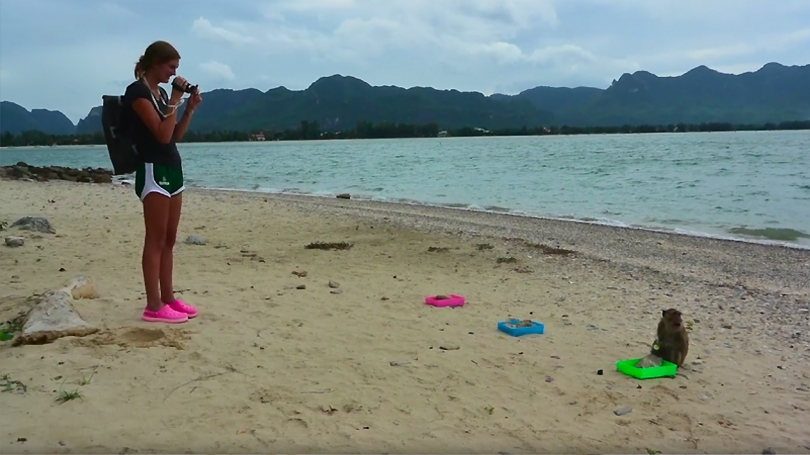It’s one thing to conduct research. It’s another to sum it up clearly and compellingly in a three-minute video. That was the challenge posed this year by Dartmouth’s first MAD (Made at Dartmouth) Video Contest, jointly sponsored by the Office of Undergraduate Advising and Research (UGAR) and the Dartmouth Library’s Jones Media Center in Baker-Berry Library.
“Students at Dartmouth are doing research in every academic discipline, from the sciences to the social sciences to the humanities and creative arts,” says UGAR director Margaret Funnell, assistant dean of the faculty for undergraduate research. “Sometimes these projects involve traditional research methods like data collection, archival research, and structured interviews. Some are more creative projects, like a work of art, a collection of poetry or a screenplay.”
Undergraduates need and welcome innovative ways to explain work they are doing with faculty, says Funnell. “Short videos are a great way for students to share their research and for the Dartmouth community to learn about the wide-ranging projects students are undertaking.”
Contestants who needed help in creating their videos were encouraged to work with staff at the Jones Media Center. Judges from both the center and UGAR evaluated entries based on how creatively each video summarized the student’s research, making effective use of the medium to support strong storytelling.
The winning videos range widely in topic and treatment.
Emma Esterman ’20 received the $1,000 Grand Prize for Exploring the Evolution of Bacteria and Viruses.
Cheyenna Gonzalez Pilsner ’21 won “best visual storytelling” with What Queer Tango Means for All of Us.
Jessica Rosien ’21 showed “best use of research video footage” in Grit Avoidance Behaviors in Long-Tailed Macaques.
Elisabeth Sanson ’20 got the prize for “best experiential learning video” for Undergraduate Research on the Final Climb.
Funnell says students do not need to be accomplished videographers to enter this contest. The emphasis is on originality, clarity, and conciseness. This year’s winners, she says, “told their stories in a way that was accessible without dumbing them down. And in every single video you saw passion for the topic and a sincere desire to help other people understand and get excited about it.”
The competition will be open again next year to any Dartmouth undergraduate who is engaged in research outside the classroom, including honors thesis research, with a Dartmouth faculty mentor. This includes Arts and Sciences faculty as well as faculty at the Geisel School of Medicine, Thayer School of Engineering, and the Tuck School of Business.
Charlotte Albright can be reached at charlotte.e.albright@dartmouth.edu.
